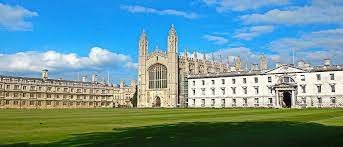Pursuing a master’s degree is a significant step in advancing one’s academic and professional career. In Brazil, a country known for its diverse culture and robust educational system, opportunities for further studies are abundant. However, candidates holding an HND (Higher National Diploma), Second Class, or Third Class degrees might find themselves questioning their eligibility for postgraduate studies.
The good news is that several institutions in Brazil recognize these qualifications for admission into their master’s degree programs. This blog post explores the criteria for admissions and lists schools and universities in Brazil that provide these opportunities.
Criteria For Admissions Schools and Universities in Brazil
Brazilian universities and schools have their unique set of criteria for admitting students into their postgraduate programs, especially those holding HND certificates, Second Class, or Third Class undergraduate degrees. Here’s a rundown of the typical requirements and considerations:
- Evaluation of Foreign Credentials: Candidates with qualifications obtained outside Brazil (such as HND certificates) must have their credentials evaluated and recognized by a Brazilian university. This process, known as “revalidação de diploma estrangeiro,” ensures that foreign qualifications meet the standards of Brazilian higher education.
- Language Proficiency: Proficiency in Portuguese is often a prerequisite since the majority of programs are taught in this language. Non-native speakers may need to pass a language proficiency test such as the CELPE-Bras (Certificate of Proficiency in Portuguese for Foreigners).
- Academic Records Review: For those with Second Class and Third Class degrees, universities will conduct a thorough review of academic transcripts to ensure the applicant’s foundational knowledge aligns with the demands of the master’s program. Some institutions may prioritize coursework and grades relevant to the field of study.
- Entrance Examination and Interview: Depending on the institution and program, candidates may be required to pass an entrance examination. This could include subject-specific tests, general knowledge, and reasoning assessments. Additionally, an interview process may be implemented to gauge the candidate’s motivation, research interests, and compatibility with the program.
- Research Proposal: For research-oriented master’s programs, applicants might be asked to submit a research proposal. This document should outline the prospective student’s research interests, objectives, methodology, and how it contributes to the field of study, demonstrating readiness for graduate-level research.
These criteria not only serve to maintain the high standards of Brazil’s postgraduate education but also ensure that incoming students are well-prepared to succeed in their chosen fields of study.
Read Also: Schools and Universities in Mexico that Accept HND Certificates, Second Class
List of and Universities in Brazil that Accept HND Certificates, Second Class and 3rd Class for Masters Degree Programs
While an exhaustive list of all universities and their evolving policies cannot be definitively provided due to the dynamic nature of admissions criteria, we highlight some institutions known for their inclusive admission processes and international programs. Prospective students are encouraged to contact these universities directly for the most up-to-date information and specific requirements:
1) Universidade de São Paulo (USP)
Renowned for its diverse range of postgraduate programs, USP has a history of accepting international students with various qualifications. The university offers several programs in English, though the majority are in Portuguese, necessitating proficiency in the language.
2) Universidade Estadual de Campinas (UNICAMP)
With a strong emphasis on research and innovation, UNICAMP values the diversity international students bring to its community. It offers programs across various disciplines, with some departments more flexible in terms of admissions criteria for international qualifications.
3) Universidade Federal do Rio de Janeiro (UFRJ)
Known for its comprehensive evaluation process of international degrees, UFRJ provides opportunities for students holding HND, Second Class, and Third Class degrees to pursue master’s studies, contingent on the successful evaluation of their credentials and fulfillment of program-specific requirements.
4) Universidade Federal de Minas Gerais (UFMG)
UFMG has a welcoming approach to international students and offers assistance in the credential evaluation process. The university hosts a wide range of programs, many of which are open to candidates with diverse academic backgrounds.
5) Pontifícia Universidade Católica do Rio de Janeiro (PUC-Rio)
PUC-Rio, a private university known for its international partnerships and exchange programs, also accepts students with various undergraduate qualifications for its master’s programs. Language proficiency requirements may vary depending on the program.
Each of these institutions has its own set of criteria and application process, so direct engagement with their admissions office is crucial for understanding the specifics of eligibility, required documents, and deadlines. Additionally, because the recognition of foreign qualifications involves a detailed process, starting applications well in advance is highly recommended.
List of Universities in Brazil that Accept HND Certificates, Second Class and 3rd Class for Masters Degree Programs
In Brazil, the acceptance of Higher National Diploma (HND) certificates, as well as second class and third class qualifications, for master’s degree programs may vary depending on the policies and criteria of individual universities and their specific programs.
1) Universidade Federal de São Carlos (UFSCar)
This public university is recognized for its inclusivity and diversity in student admissions. UFSCar has various graduate programs that are designed to accommodate students with HND certificates and those who graduated with Second Class and Third Class degrees, provided they meet the specific criteria set by the department of interest.
2) Universidade Estadual Paulista (UNESP)
A major public university system in Brazil, UNESP offers a range of postgraduate programs in fields such as sciences, arts, engineering, and humanities. The university is open to evaluating international qualifications on a case-by-case basis, making it a viable option for HND holders and those with lower class degrees seeking advanced studies.
3) Universidade Federal de Santa Catarina (UFSC)
Known for its strong research programs and international collaborations, UFSC welcomes students from various academic backgrounds, including those with HND certificates and lower undergraduate classifications. The university’s comprehensive approach to evaluating foreign credentials facilitates the inclusion of international students in its master’s degree programs.
4) Universidade Federal do Paraná (UFPR)
As one of the oldest universities in Brazil, UFPR prides itself on a rich academic tradition and a diverse range of postgraduate programs. Its admissions policy is accommodating to international students, including those with HND certificates and lower degree classifications, subject to an evaluation of their academic records and the relevance of their previous studies to the desired master’s program.
5) Universidade Federal do Pernambuco (UFPE)
With a strong focus on technological and scientific research, UFPE offers postgraduate programs across various disciplines. The university is known for its openness to international students and has procedures in place for the recognition of foreign degrees, including HND certificates and Second Class and Third Class degrees.
FAQS
Can I apply for Masters with my HND certificate?
Many universities in the UK and other countries will accept an HND as an equivalent to a bachelor’s degree, and some will even consider it as equivalent to a 2:2 or 2:1 bachelor’s degree. However, it is always best to check with the university directly to confirm their specific requirements. With the right qualifications and experience, a master’s degree is within reach for those who hold an HND certificate.
Can I apply for Masters with a second class degree?
Yes, many universities in the UK and other countries will consider applications from students who hold a second class degree for a master’s degree program. While a first class degree may be preferred by some universities, a second class degree can still make you a competitive candidate for many master’s programs.
Can I do Masters abroad with a second class lower?
Yes, there are options! Universities in some countries, like Europe and Asia, might be more flexible with entry requirements. Research specific programs and contact their admissions office directly.
How much does it cost to get a Masters degree in Brazil?
The cost varies depending on the university, program, and whether it’s public or private. Public universities generally offer lower costs, ranging from $3,000 to $10,000 USD for the entire program. Private universities can be significantly more expensive, reaching $20,000 or even higher.
How long is a Masters in Brazil?
Masters programs in Brazil typically last 18 to 24 months full-time, with some exceptions. The specific duration depends on the program and its structure.
Conclusion
In conclusion, there are many great schools and universities in Argentina that accept HND certificates, second class degrees, and third class degrees for admission into master’s degree programs. Some of the top schools include Universidad de Buenos Aires, Universidad Nacional de Córdoba, and Universidad Nacional del Litoral.
These schools offer a variety of programs in different fields, making them an attractive option for students from all backgrounds. If you’re considering furthering your education in Argentina, be sure to check out the opportunities available at these universities.






